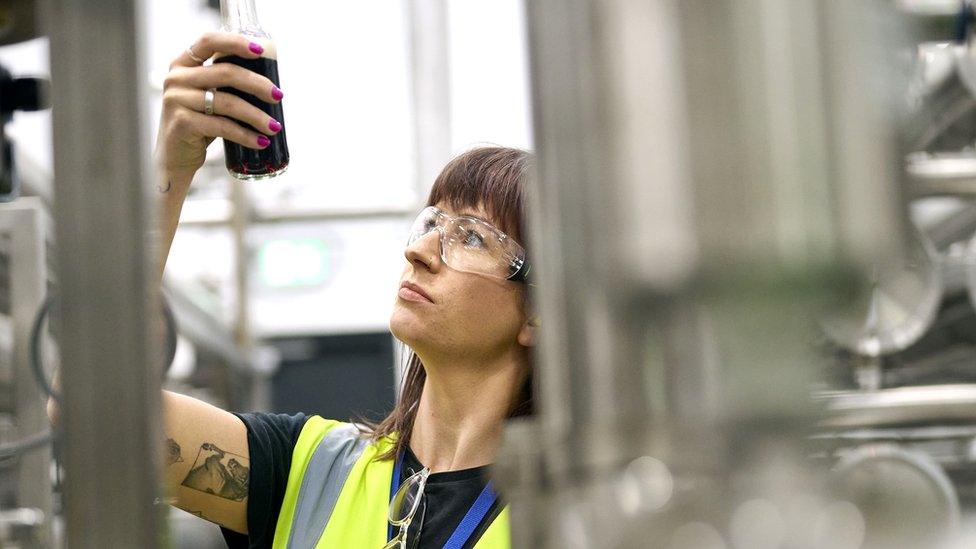Irish economy expected to grow in next two years

- Published
Ireland’s domestic economy will grow solidly over the next two years as inflation falls and wages grow, a leading think tank has forecast.
The Economic and Social Research Institute (ESRI) expects modified domestic demand (MDD) to grow by 2.3% this year and 2.5% next year.
MDD is a measurement which strips out the distorting impacts of multinational companies on Ireland’s economy.
Official figures show MDD grew by just 0.5% last year as inflation and higher interest rates hit spending and investment.
Ireland’s economy recovered strongly from the pandemic before slowing significantly in 2023.
Higher inflation was a drag on many households with the ESRI saying there had been no real pay growth during 2022 and 2023.
'Critical challenge'
Real pay is the value of pay adjusted for inflation and is a guide to how living standards are changing.
Pay can increase in cash terms but if it is not keeping up with the rise in prices, then it is falling in real terms.
The ESRI expects real pay to increase this year, as does Ireland’s Central Bank.
The headline measurement of economic performance in most countries is Gross Domestic Product (GDP), but Irish GDP is heavily distorted by the activities of multinational companies.
Official figures suggest that Irish GDP shrank by 3.2% in 2023.
Typically, GDP overstates the growth rate of the Irish economy, but over the last year it has swung the other way.
A significant reason is sales and exports by the Irish operations of US pharmaceutical firms coming off their pandemic highs.
The ESRI expects Irish GDP to recover over the next two years as global trade rebounds.
The think tank also reiterated the ‘critical challenge’ for Ireland’s economy in the years ahead is dealing with ‘well documented infrastructure bottlenecks.’
That mainly refers to housebuilding but Ireland also has challenges in areas like renewable energy and public transport.
Plans for an underground rail link between Dublin Airport and the city centre are now at the stage of public planning hearings, more than 20 years after the project was first proposed.
Related topics
- Published1 March 2024

- Published6 February 2024
